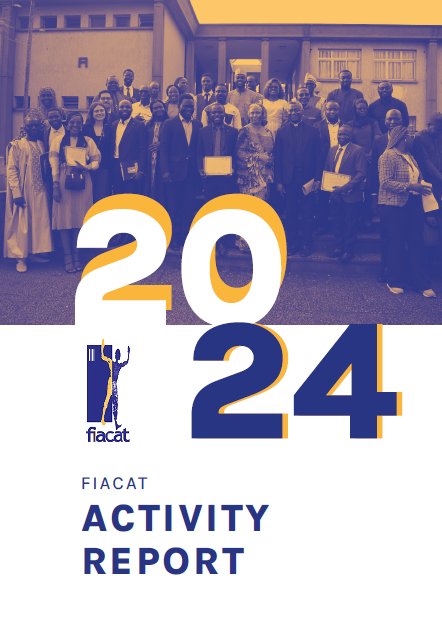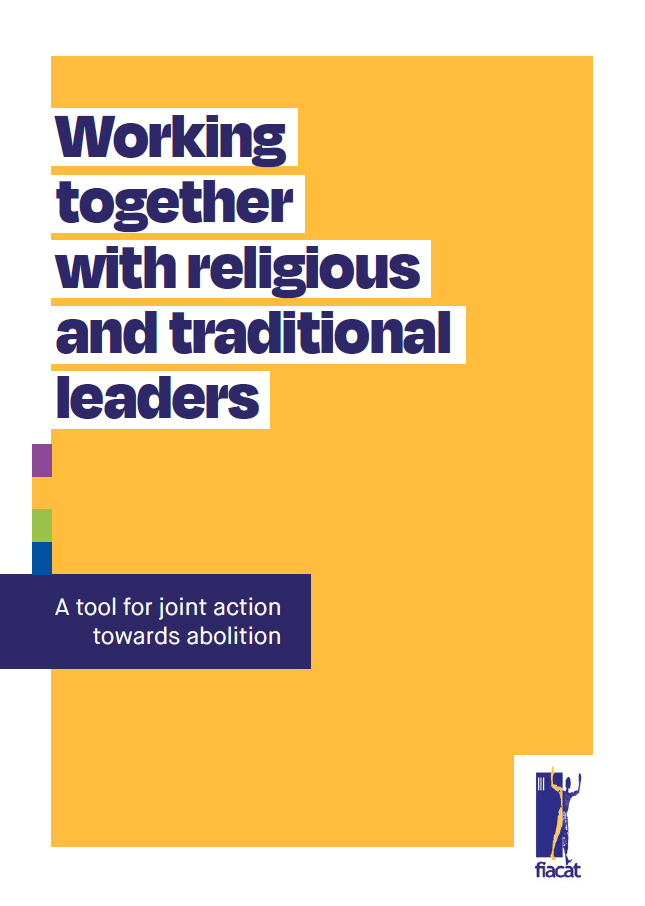Working together with religious and traditional leaders: A tool for joint action towards abolition
Abolition of the death penalty cannot be imposed solely through legal or judicial means. It requires a deep-rooted transformation in people's ways of thinking, which inevitably involves bringing together opinion-makers in their diversity. The media, through to their ability to inform and raise awareness among the wider public, civil society organisations, through their grass roots bases and expertise, and opinion makers of all backgrounds through their influence on public debates, all provide vital bridges to bring about change in how this practice is perceived.
Among these influential actors, religious and traditional leaders occupy a special place. Sub-Saharan Africa is one of the regions in the world where religion plays a most primordial role. Where communities continue to turn towards their spiritual guides to seek explanation for complex moral questions and guide their collective choices, their commitment to the abolitionist fight is a profound necessity. Moreover, their mobilisation provides additional means of action: on substance, the concepts of justice, forgiveness, reconciliation and redemption, central in many religious and cultural traditions throughout the continent, offer a rich seam of resources to rethink the punitive approach in response to the most serious crimes; in form, the spiritual mission of leaders, their ability to organise tradition and modernity, their intimate knowledge of their communities and their ability to create links, give them a unique sense of legitimacy and make them essential actors in any major process of societal change.
On the basis of this premise, FIACAT has organized over the last few years, in cooperation with its members "Actions by Christians to Abolish Torture" (ACAT), a number of workshops to build awareness among opinion-makers about the abolition of the death penalty, in particular targeting religious and traditional leaders, the media and members of civil society; in Mali (2014 and 2018), in the Congo (2015), in Chad, Niger and Burkina Faso (2016), in the Central African Republic (2017), in Liberia (2019) and in the Democratic Republic of the Congo (2021).With a view to drawing lessons from these different experiences, in May 2025, in Dakar (Senegal), a seminar was organised in cooperation with ACAT Senegal to build greater awareness among religious and traditional leaders about the abolition of the death penalty. It brought together over 40 participants, religious and traditional leaders and members of civil society, from 9 countries in Sub-Saharan Africa (Cameroon, Central African Republic, Chad, Congo, Democratic Republic of Congo, Ghana, Liberia, Niger and Senegal).
This tool stems from the many discussions that took place during these activities. It is aimed at those involved in the abolition movement who wish to understand and mobilize the potential of religious and traditional leaders.




